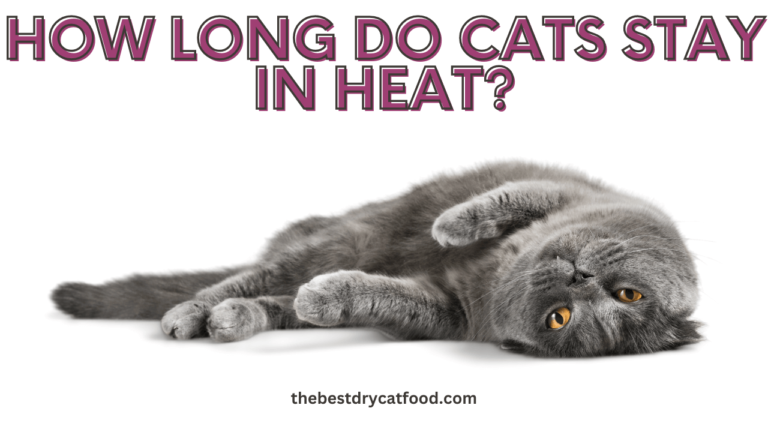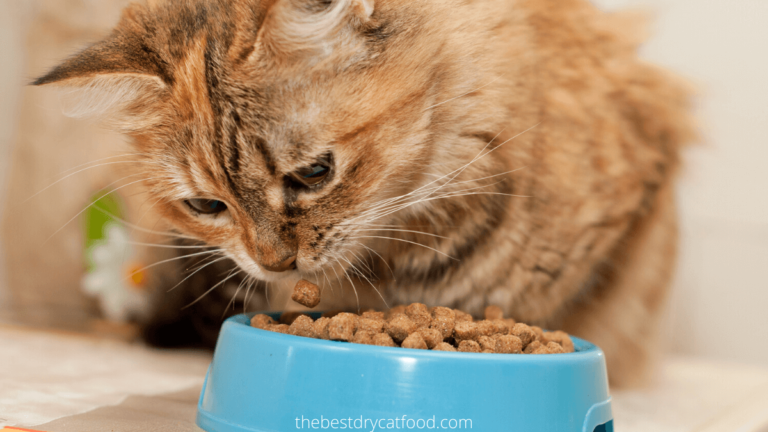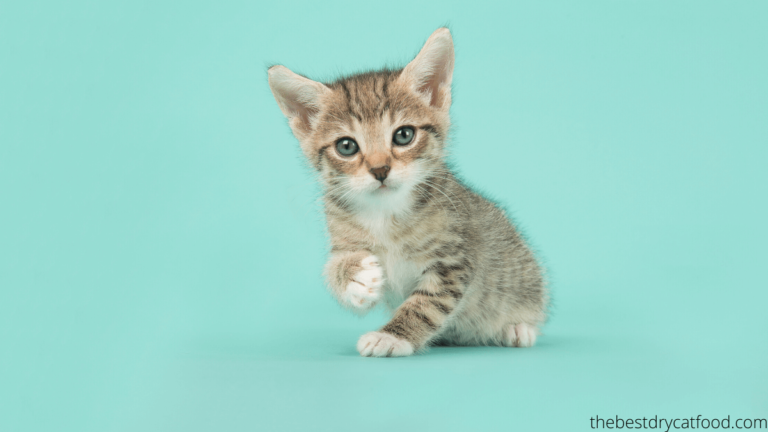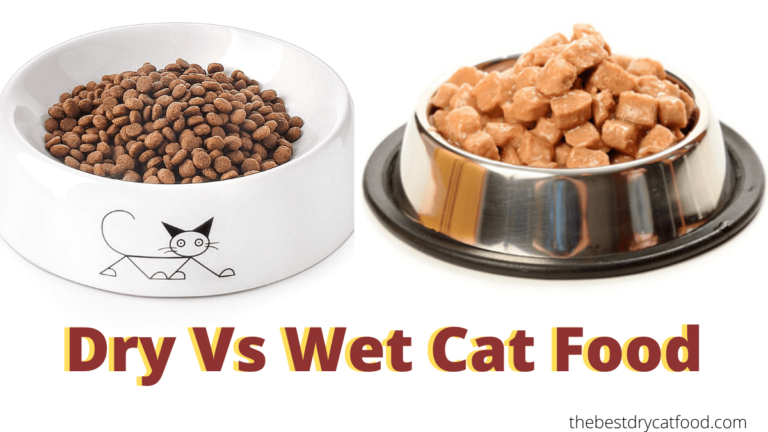Why Does My Cat Scratch the Floor After Eating? Causes & Tips
If you’ve ever watched your cat finish a meal and then start pawing or scratching at the floor around their bowl, you’re not alone. Many cat owners wonder, “why does my cat scratch the floor after eating?” It can look strange, and sometimes it even feels like your cat is trying to bury their food.
In this article, we’ll explore the reasons behind this behavior, when it’s normal, when you should be concerned, and what you can do to manage it.
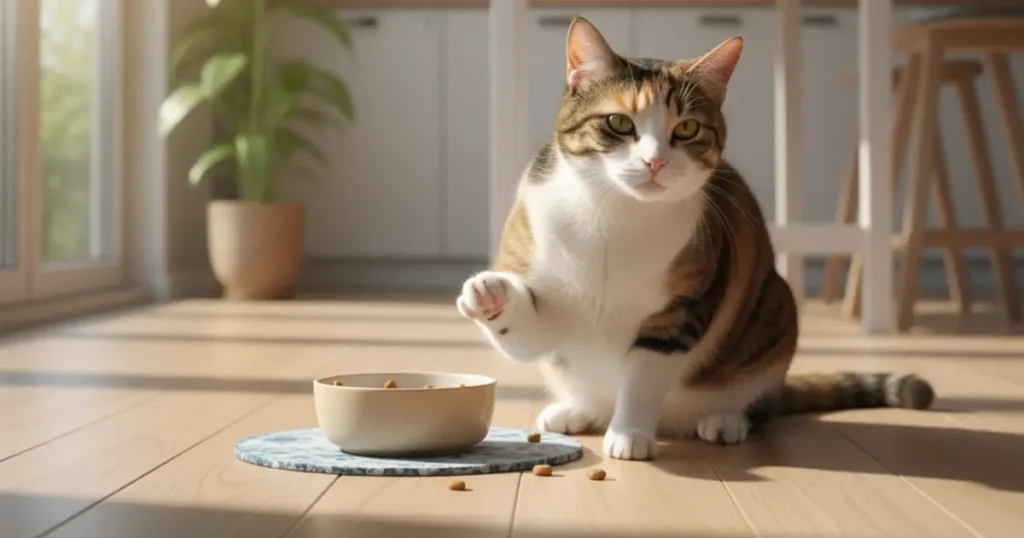
Why Cats Scratch After Eating
Cats often scratch the floor after meals as part of their natural survival habits as detailed below.
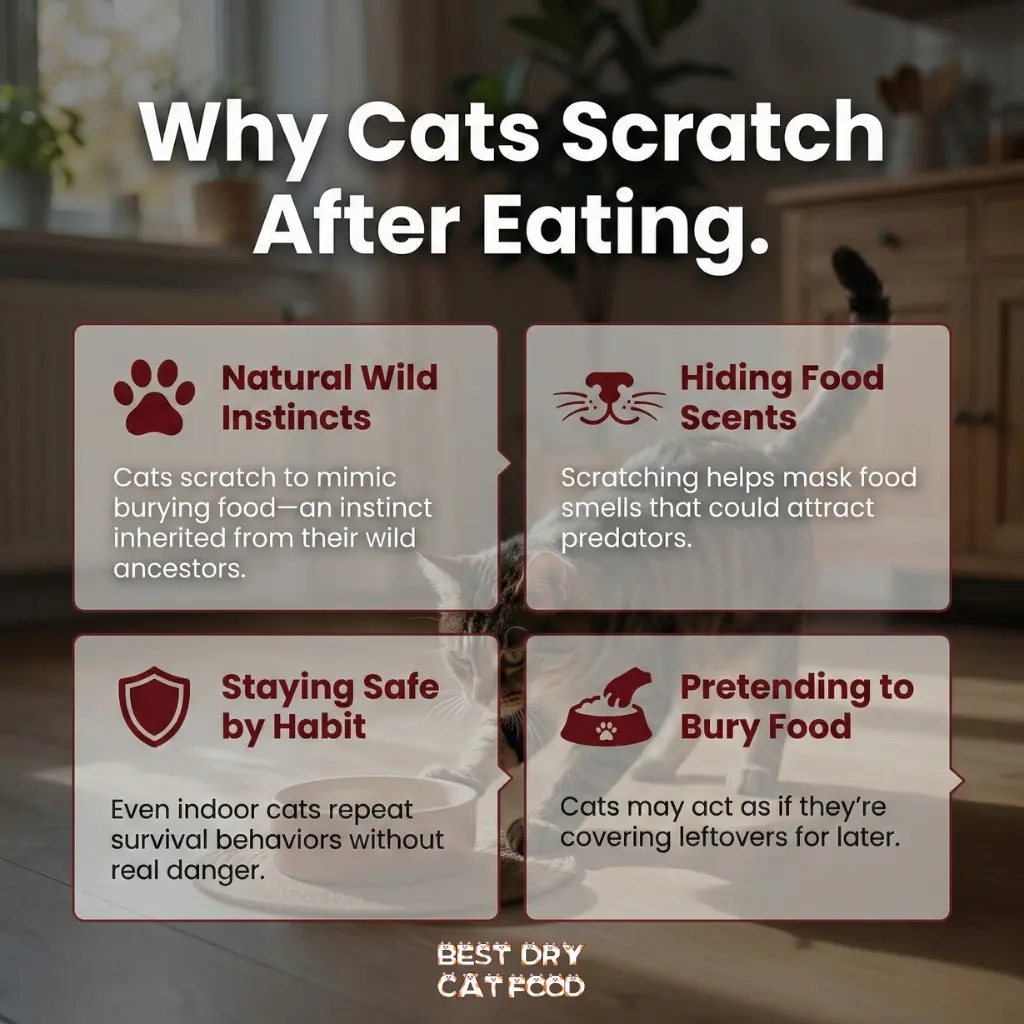
Natural Habits From the Wild
Cats may live in our homes today, but their instincts come from thousands of years of surviving in the wild. Wild cats often scratched the ground to cover leftover food. This kept predators away and hid the smell of a recent meal.
So when you see your house cat scratching near their bowl, it’s often just nature at work.
Scratching to Stay Safe
Scratching helps cats hide scents and stay unnoticed in the wild. Even though your indoor cat has nothing to fear in the kitchen, this behavior remains part of their survival code.
Is It Like Hiding Food?
Yes, in many cases it is. By scratching, your cat might be “pretending” to bury leftovers, almost as if saving it for later. Of course, inside your home, there’s no dirt to cover food with, but the scratching motion is the same.
Main Reasons Cats Scratch the Floor
Cats don’t all scratch for the same reason. Here are the most common explanations:
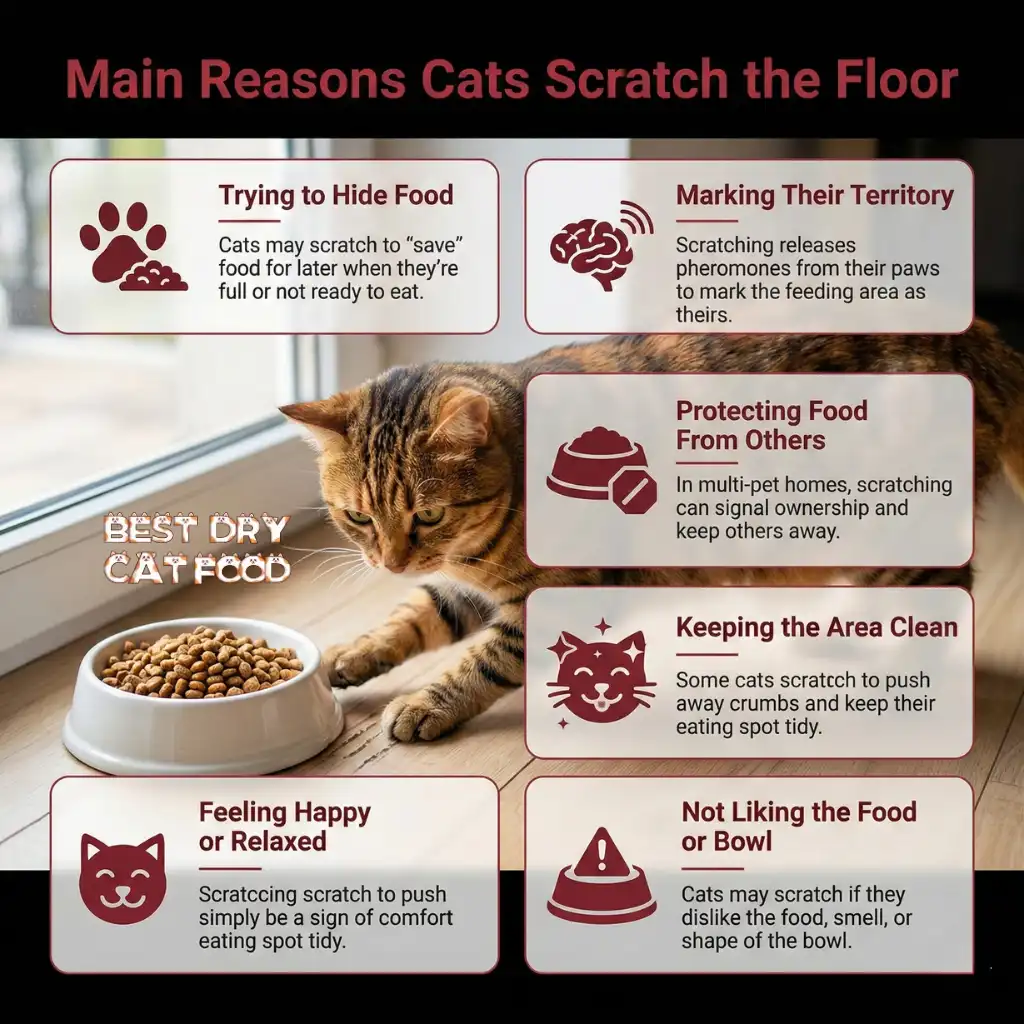
Trying to Hide or Cover Food
If you notice your cat scratching around the bowl, they may be acting like they’re hiding the food. This can happen if:
- The portion is too big.
- They’re already full.
- They simply don’t want the food right now.
It’s a way of saying, “I’ll save this for later.”
Marking Their Area With Scent
Cats have scent glands in their paws. When they scratch, they release tiny chemical signals called pheromones. This is their way of marking territory and telling other pets, “this is my food area.”
Protecting Food From Other Pets
If you have more than one cat—or even a dog—your cat might scratch as a way of guarding what’s theirs. It’s like drawing an invisible line: “Don’t touch my bowl.”
Wanting a Clean Eating Spot
Some cats are very tidy. After eating, scratching may be their way of saying they want the area clean. Think of it like pushing crumbs off the table.
Feeling Happy After Eating
Not all scratching is about food. Sometimes, cats scratch because they’re content. Just like how they knead a blanket when relaxed, scratching the floor after a meal may be a sign of comfort.
For example, many cat owners notice their cats scratching happily after finishing wet food but not after eating dry food. This can simply be a sign of satisfaction.
Not Liking the Food or Bowl
Cats can be picky. If your cat scratches the floor right after sniffing or tasting food, it may mean they don’t like it. It could also be an issue with the bowl—some cats dislike eating from deep or narrow dishes.
If you suspect food is the problem, you may want to explore options from trusted brands. Reading detailed reviews, like our Purina Fancy Feast Dry Cat Food Reviews, can help you choose a formula your cat enjoys.
Mother Cat Behavior
Some of this scratching comes from mother cats, who cover food smells to keep kittens safe and naturally pass this habit on to other cats. Have a look:
Hiding Food Smell to Keep Kittens Safe
Mother cats often scratch the ground to hide leftover food scents. This prevents predators from tracking her kittens. Even if your cat isn’t a mother, the instinct can remain strong.
Passing on Survival Habits
Sometimes, kittens learn this scratching behavior from their mothers. They copy what they see, and it stays with them as they grow up.
Should You Worry About It?
Most scratching is harmless, but in certain cases it may point to overfeeding, stress, or dislike of the food, which owners should watch for. Let’s dig deep:
When It’s Normal
Most of the time, scratching after eating is completely normal. It’s just instinct and doesn’t harm your cat or your home.
When It Could Mean Stress or Problems
You might need to pay attention if:
In such cases, it’s worth checking with your vet to rule out health issues.
If diet plays a role, choosing the right food can make a big difference. Cats with sensitive stomachs may scratch or reject food more often. A guide like Best Dry Cat Food for Sensitive Stomach can point you toward gentler options.
How to Stop or Reduce Scratching
You don’t always need to stop this behavior—it’s natural. But if it’s causing damage or mess, here are some tips:
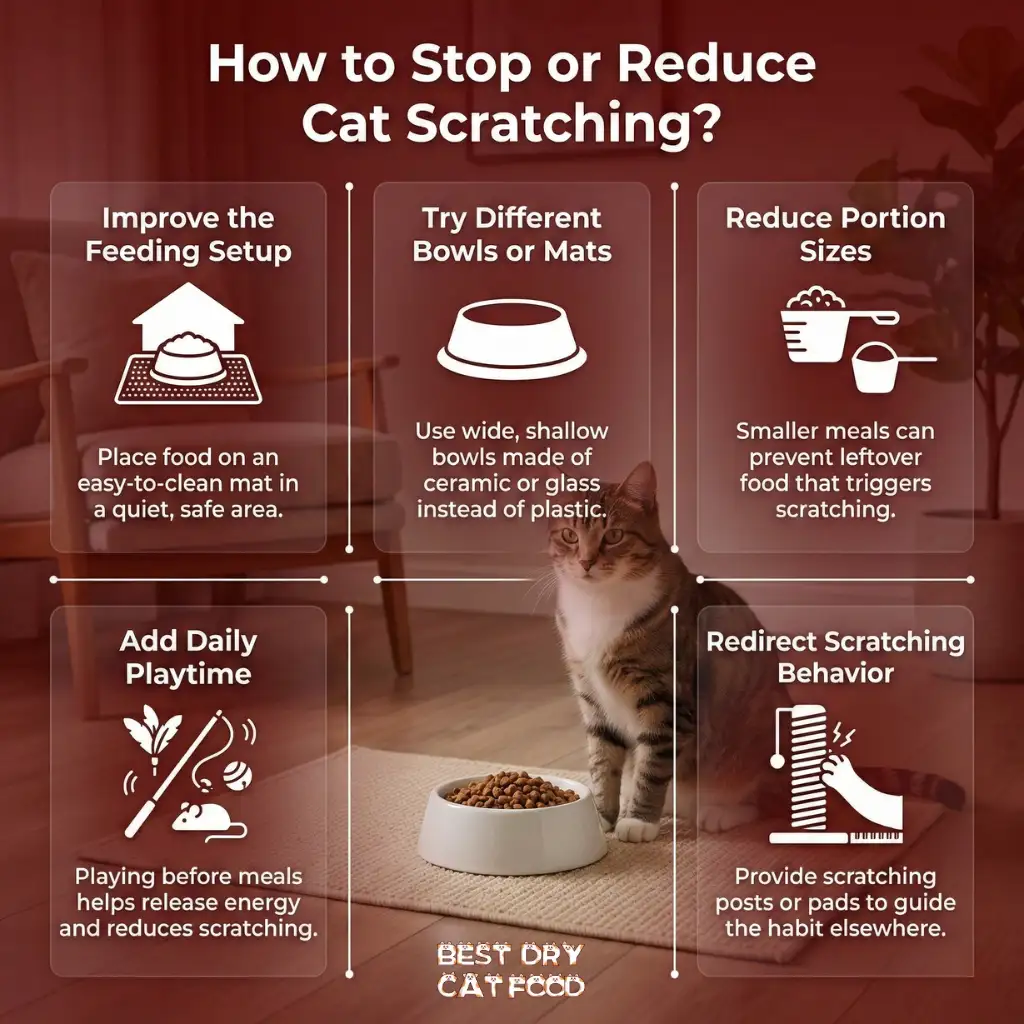
Give a Better Feeding Setup
- Place the bowl on an easy-to-clean mat.
- Use a spot that feels safe and quiet for your cat.
Use Different Bowls or Mats
Some cats don’t like metal bowls or deep dishes. Try:
- Wide, shallow bowls.
- Ceramic or glass instead of plastic.
Avoid Giving Too Much Food
If your cat always leaves leftovers, reduce portion sizes. Smaller meals may help stop the need to “bury” food.
Keep Your Cat Busy With Play
Sometimes scratching is just extra energy. Daily play with toys or a scratching post can redirect this behavior.
One cat owner noticed that when they played with their kitten before meals, the scratching around the bowl reduced a lot. The cat was calmer and more focused on food instead of “burying” it.
For more feeding guidance, you can check our post on When to Switch From Kitten Food.
Frequently Asked Questions (FAQs)
Final Thoughts
So, why do cats scratch the floor after eating? Most of the time, it’s a mix of natural instinct, comfort, and communication. Whether they’re trying to hide food, mark their territory, or just showing happiness, this behavior is usually harmless.
But if the scratching seems excessive or comes with other problems like not eating, it’s a good idea to talk to your vet.
At the end of the day, scratching is just another quirky cat habit—one that connects them to their wild ancestors.
For a deeper understanding of nutrition and behavior, our guide to Best Dry Cat Food Brands Reviews is a great place to start.
For general cat behavior, Cornell University College of Veterinary Medicine also offers trusted, science-based insights.

